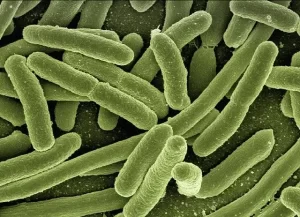New treatment Nulibry treats the rare disease: type A MoCD diagnosed at birth
- Did Cloud Seeding Unleash a Deluge in Dubai?
- Scientists Identify Gut Bacteria and Metabolites that Lower Diabetes Risk
- OpenAI’s Model Matches Doctors in Assessing Eye Conditions
- UK: A Smoke-Free Generation by Banning Sales to Those Born After 2009
- Deadly Mutation: A New Monkeypox Variant Emerges in the DRC
- EPA Announces First-Ever Regulation for “Forever Chemicals” in Drinking Water
New treatment Nulibry treats the rare disease: type A MoCD diagnosed at birth
New treatment Nulibry treats the rare disease: type A MoCD diagnosed at birth. At present, there are more than 7,000 known rare diseases. Although the incidence of rare diseases is less than 1/1000, the total number of patients worldwide has exceeded 300 million.

The good news is that recently, the US FDA announced the approval of the alternative therapy Nulibry (Fosdenopterin) to reduce the risk of death due to molybdenum cofactor A deficiency (MoCD).
This is the first innovative treatment approved to treat this rare genetic metabolic disorder.
▌Rare genetic diseases that get sick at birth: MoCD type A
Molybdenum cofactor deficiency type A (MoCD) is an autosomal recessive inherited disease caused by the interruption of molybdenum cofactor synthesis. It is extremely rare and usually occurs in the first few days after birth.
Due to the lack of molybdenum cofactor (a substance necessary for human development), patients will experience severe and rapid neurological damage due to the accumulation of toxic sulfite metabolism, including intractable seizures, feeding difficulties, muscle weakness and brain damage .
Like other rare diseases, the clinical manifestations of type A MoCD are atypical and may be similar to hypoxic-ischemic encephalopathy or other neonatal epileptic seizure diseases, which are easy to be misdiagnosed and missed.
Type A MoCD progresses rapidly, and the infant mortality rate is extremely high. The median survival time is less than 4 years. Most patients die of infection in their early childhood.
At present, supportive treatment is mainly for the complications caused by the disease, and there is no approved therapy to treat type A MoCD.
▌New alternative therapy: Nulibra
Nulibry is a cPMP (cyclopyran monophosphate) substrate replacement therapy, and Fosdenopterin is cPMP hydrobromide dihydrate. It can replace cPMP and allow the molybdenum cofactor synthesis step to continue, eliminating sulfites while activating MoCo-dependent enzymes.
Nulibry has been awarded the title of “Orphan Drug” and “Breakthrough Therapy” by the FDA, and has been granted “Priority Review” status.
This approval is based on a clinical trial: The 3-year survival rate of 13 subjects in the Nulibry treatment group was 84%; the untreated control group was only 55%. This study proved the effectiveness of Nulibry in the treatment of type A molybdenum cofactor deficiency.
It should be noted that the drug has been found to be phototoxic in animal experiments. Therefore, patients receiving Nulibry treatment should avoid sun exposure, or apply sunscreen, wear sun protection clothing and sunglasses.
It is best for pregnant women to undergo scientific prenatal screening and prenatal diagnosis to avoid the birth of children with rare diseases as much as possible. This is the most economical and effective way to prevent rare diseases.
For older women over 35 years old, family history of genetic diseases, or one of the couples exposed to radiation and other adverse exposure environments, more attention should be paid to prenatal diagnosis and eugenic consultation.
(source:internet, reference only)
Disclaimer of medicaltrend.org



